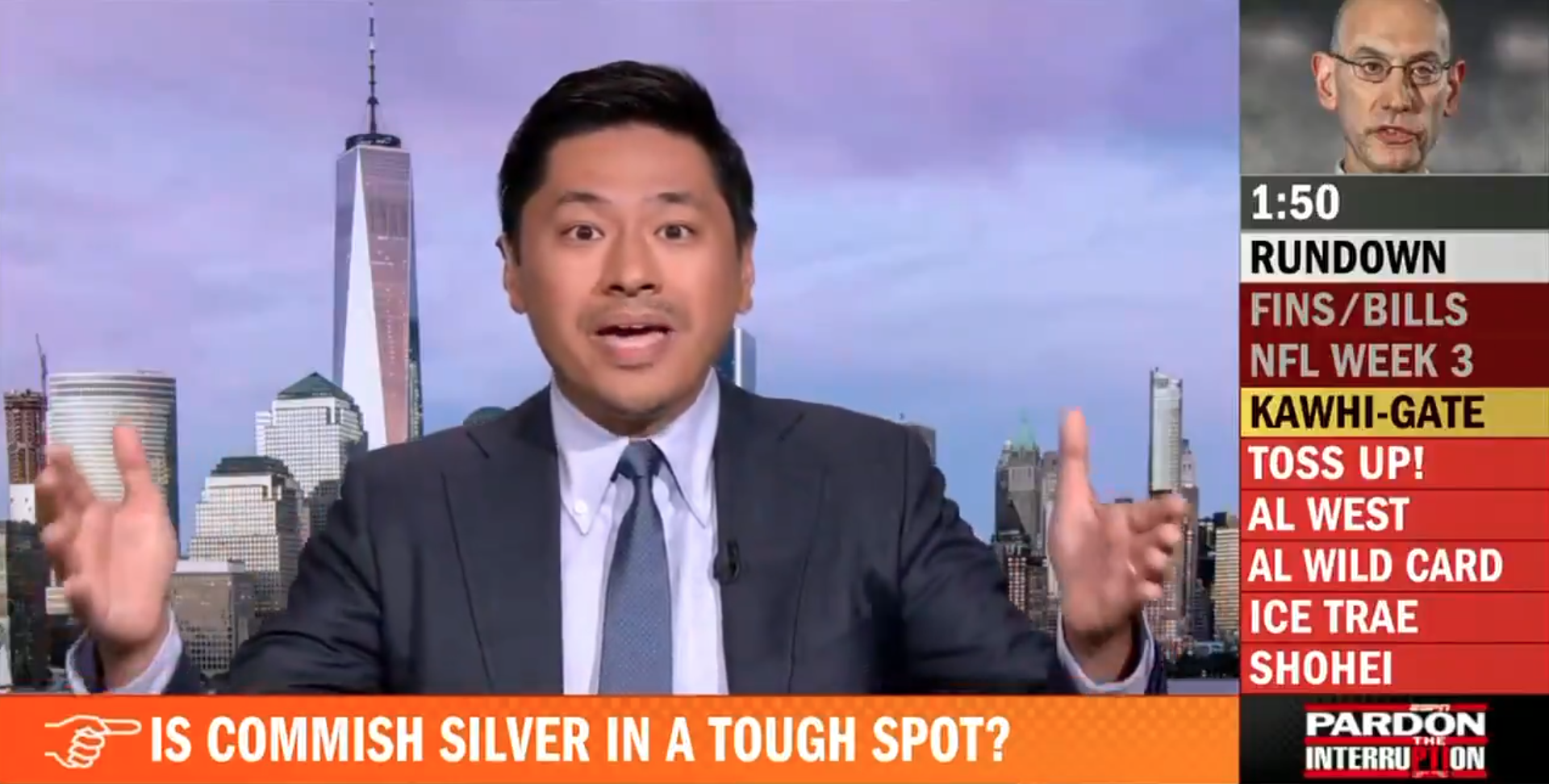For many weeks now, Pablo Torre has been exhaustive in his reporting around the Los Angeles Clippers and their potential circumvention of the NBA salary cap for superstar Kawhi Leonard.
In Torre’s latest comments on the matter, he appears to be sending a message to the league: The ball is in your court.
The latest episode in Torre’s miniseries on the Clippers revealed further evidence of money being transferred from the team and its owners to Aspiration, before ultimately being directed to Leonard through a “no-show” partnership. In this case, the team purchased $21 million of so-called carbon credits (offsets developed by companies like Aspiration to counteract the footprint of industrial activity) just before Leonard was owed a similar amount for the no-show job.
The same day, NBA commissioner Adam Silver walked back recent comments claiming that he did not know of Aspiration before Torre’s reporting, despite a sizable partnership between the company and the Clippers that featured its logo on courtside seats at the team’s arena. Silver originally stated he had “frankly never heard of” Aspiration last Wednesday (in a clip publicized by none other than Torre himself), and this week clarified that he was “certainly aware” of the company.
Torre clearly sees an opportunity to apply pressure on the league office to get its message straight and act swiftly. In his first direct response, Torre, filling in as a host on ESPN’s Pardon the Interruption, called the saga “the biggest test of Adam Silver’s tenure.”
Pablo Torre: “I believe (the Aspiration/Clippers investigation) is the biggest test of Adam Silver’s tenure as commissioner” pic.twitter.com/P7gOD9ycxG
— Awful Announcing (@awfulannouncing) September 19, 2025
To longtime NBA fans, this is a powerful comment. Clippers owner Steve Ballmer entered the league on the heels of Silver’s first major incident, when Donald Sterling was banned from the league forever after audio leaked of him making racist remarks about Black fans.
Silver also led the NBA through the 2020 pandemic and racial justice protests, which included a “wildcat strike” by the Milwaukee Bucks.
None of that, according to Torre, equates with the perception of side deals for players or an uneven playing field (or court) among NBA teams.
“The question for Adam Silver, to be blunt about this, is do the rules matter?” Silver said.
Beyond that, Torre, who senses the way the wind is blowing on his own work as well as anyone, challenged the league to stand up for what fans are seeing and hearing rather than getting in the way of it.
“This story has been shocking to me in terms of its resonance not just among the Board of Governors … but with the fans,” Torre said. “There’s a credibility question around, do you actually care about the integrity of your game?”
With his back-and-forth claims about the company in question and insistence that the NBA will need more than circumstantial evidence to punish Ballmer and the Clippers, Silver has been strangely inactive as the evidence mounts. Compare that with other instances in which Silver has been praised for having his finger on the pulse of what his owners and even players want, and it is a strange state of affairs.

